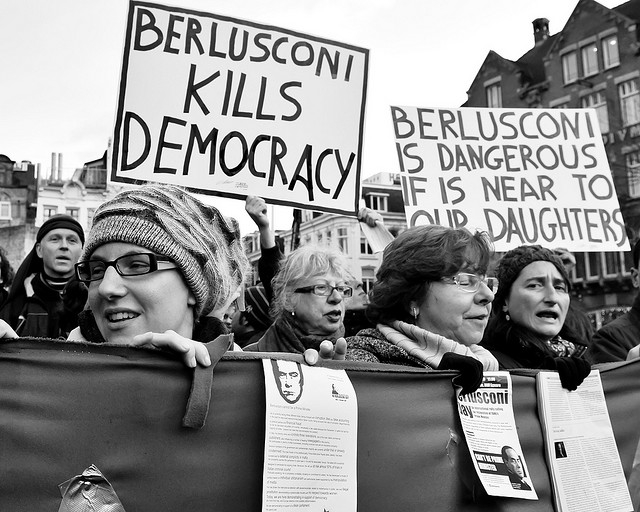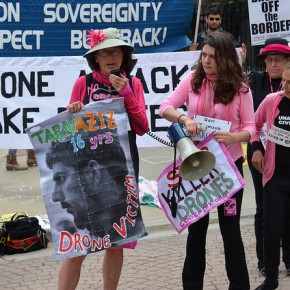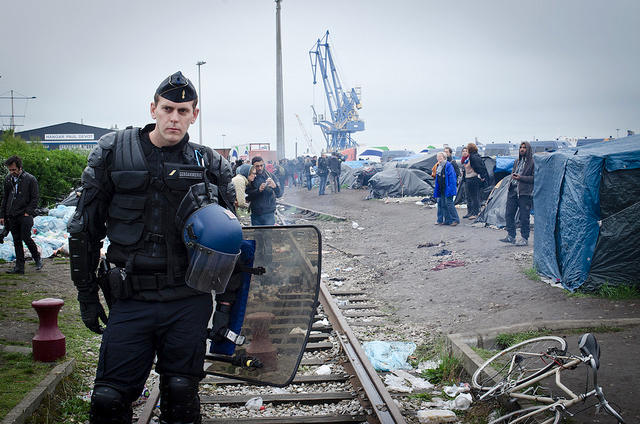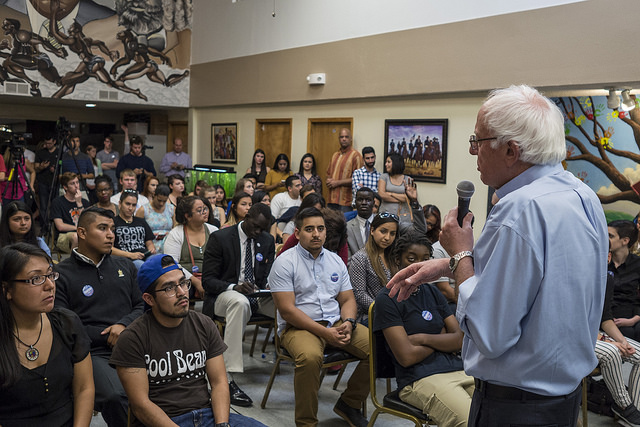He should have been jailed long ago. By all accounts, anyone with a track record like Silvio Berlusconi had no business holding a seat in Italy’s Senate. Still, after two decades of steering the country, if not from its highest office, through the strength of his political parties, the 77-year-old Milanese billionaire was finally expelled from the legislature, on the strength of a successful criminal conviction.
Was this really the end of his rule, though? Not according to Il Cavaliere, who told an adoring audience in Rome he was still in fighting form. Sounding confident, he has good reason to remain defiant. Berlusconi still exercises an enormous influence in Italy, on numerous levels – most particularly through his vast media empire. He’ll simply rule from ‘below’.
As many Italian analysts have argued, the bigger task will be in eliminating the culture the ex-lawmaker created. Part of what was so revolutionary about his era was the transformation of society Berlusconi led Italy through, out of the ashes of the Cold War conflict, into a free-for-all period marked by rampant consumerism, on the one hand, and American-style televangelist populism, on the other.
It’s a perfect prescription for violence amongst anti-parliamentary currents on the left, for whom conditions for democracy, of any kind, have never appeared more bleak. Especially in matters concerning the environment, where, it seems, everyone across the Italian political spectrum has succumbed to the logic of the market. The flyer below is a good example.
Photographed in Turin, the text expresses support for two anarchists, charged with terrorism, for attacking a nuclear plant designer. Though far more general in its concerns about nuclear power, it is hard to separate the political recommendations it makes from the larger historical context behind it. The Berlusconi era, it appears, radicalized everybody.

Don’t the figures add up?
Two years have passed since the last nuclear power plant accident in Fukushima: an incalculable – and [underreported] – number of dead, injured and contaminated, [and] global damage, which the scientific community, Japanese government, and the press clumsily try to hide, until the tragic farce of the next Olympic Games in Japan, through propaganda will[disguise] a devastated, deadly and unuseful territory.
[No one knows the precise] number of radioactive scum tanks, dispersed and leaking death and venom in the Saluggia and Trino Vercellese country, next to the Po River, [the] remains of the last nuclear plant no longer in use in the Piemonte region, [also known as] Trino Vercellese.
Trains from Northern Europe and Italy regularly pass through the Val di Susa corridor and [nearby] France, loaded with nuclear [waste] aimed at reprocessing (read: reuse.)
Finmeccanica, an industrial group, with diversified interests, [including] nuclear [power] for civil use (the maintenance of existing plants and the construction of new ones) [and] in the production and trade of weapons and control systems, particularly [internationally] (nuclear plants in Romania, weapons trade with India, just to give some examples, and so on,) is a typical example of fraud, corruption, exploitation, intrinsic to any expression of power and capital.
Roberto Adinolfi, a nuclear plant designer, [and] a defender of the false sustainability of the use of nuclear power for civil purposes, (as well as managing director of the Finmeccanica group’s Ansaldo Nucleare,) was injured by a gun shot outside his house, on May 7th 2012, in an action claimed by the “Olga” unit from the informal Anarchist Federation.
Two mates, anarchists Nicola Gal and Alfredo Cospito, will testify on October 30th, 2013, in a Genoa court. They’re accused of terrorism, with the [goal of inflicting] the above-mentioned injury.
We salute with joy and rage those who fight against [crimes] committed by power, and proudly continue to claim the value and effectiveness of real struggle, and [of expressing] disapproval.
For anarchy
Translation by Giulia Pace. Photographs courtesy of Jos van Zetten and Joel Schalit.





